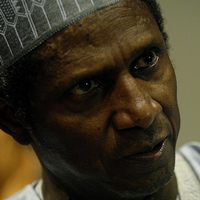When Nigerian President Umaru Yar'Adua left the country in November 2009 to seek treatment for a heart ailment, few anticipated that both he and Africa's most populous country would end up on life support.
The leadership crisis resulting from Yar'Adua's failure to constitutionally hand over power to Vice President Goodluck Jonathan -- either at the time of his departure or since -- has had more than just political implications for Nigeria. It has rocked the oil sector and threatened to undo substantial security gains made in the oil-producing Niger Delta, following a mostly successful amnesty and demobilization program for the region's largest rebel group, the Movement for the Emancipation of the Niger Delta (MEND).
The power vacuum has also reinforced international and domestic fears about the insidious level of corruption -- considered the largest obstacle to foreign investment -- at all levels of government, exacerbated by the absence of a head of state to impose some level of transparency on public spending. Complicating matters even further, the timing could not be worse, with Nigeria caught in the uncomfortable glare of the international spotlight over the failed Christmas Day terrorist attack on an American airliner by one of its nationals.

